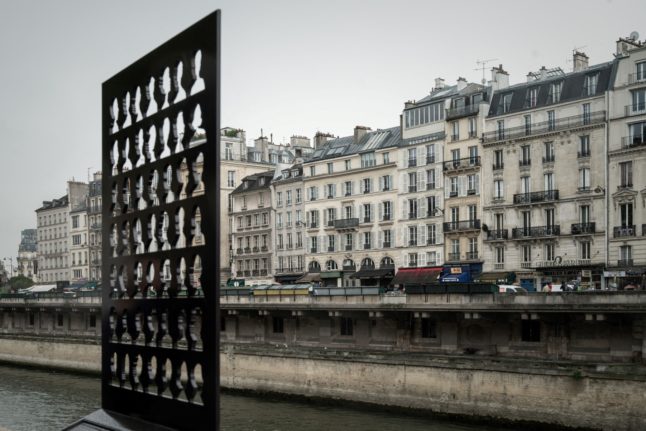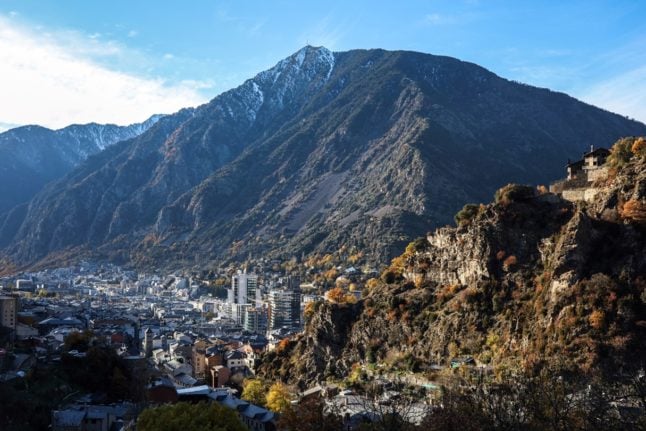Dozens of peaceful demonstrators died during a crackdown by Paris police on a protest by Algerians in 1961. The scale of the massacre was covered up for decades by French authorities before President Emmanuel Macron condemned it as “inexcusable” in 2021.
The massacre
The killings, which the French historian Emmanuel Blanchard called the most deadly repression in Western Europe since World War II, took place as Algeria was in the seventh and penultimate year of its fight for independence from colonial master France. At the time a bombing campaign targeting mainland France was carried out by pro-independence militants.
The peaceful demonstration on October 17th, 1961, of some 30,000 Algerians – mostly living in shanty towns around the French capital – was called by Algeria’s National Liberation Front (FLN), and was intended to protest at a curfew that only affected Algerians.
As they marched, around 10,000 police officers charged into the crowd, hurling some into the river. Witnesses said that police also opened fire on the demonstrators, throwing the bodies of those killed into the Seine.
“Many victims died under the blows of the police, dozens of others were thrown into the Seine and several died of suffocation after being thrown to the ground and covered by heaps of bodies,” according to the Immigration Museum in Paris, which has helped catalogue the event.
It later emerged that some police had been influenced by erroneous reports that their colleagues had been shot dead during the demonstration.
The man who gave the command was Maurice Papon, who despite having collaborated with the Nazis during World War II had risen to become head of the Paris police.
Papon was later convicted of war crimes for deporting 1,600 Jews to the death camps, but never stood trial over the Paris massacre.
Many Algerians were grabbed by police long before the protest began, rounded up as they got off the Metro. Some 12,000 were arrested and bused to internment camps, prepared in advance, where they were beaten or expelled to Algeria, with the lucky ones eventually allowed to go home.
Latest resolution
The bill approved on Thursday in the Assemblée nationale was put forward by Greens lawmaker Sabrina Sebaihi and ruling Renaissance party MP Julie Delpech, and was approved by 67 lawmakers, with 11 against.
The text of the resolution stressed the crackdown took place “under the authority of police préfet Maurice Papon” and also called for the official commemoration of the massacre.
The term “state crime” however does not appear in the text of the resolution, which was jointly drafted by Macron’s party and the Elysée Palace.
Sebaihi said the vote represented the “first step” towards the “recognition of this colonial crime, the recognition of this state crime.”
Acknowledgement
On the 60th anniversary of the killings in 2021, Macron acknowledged that several dozen protesters had been killed, “their bodies thrown into the River Seine.”
The precise number of victims has never been made clear and some activists fear several hundred could have been killed.
In 2012, then president François Hollande paid “tribute to the victims” of a “bloody crackdown” on the men and women demonstrating for “the right to independence”.
In 2019, Paris mayor Anne Hidalgo unveiled a memorial artwork next to the Seine, featuring dozens of silhouettes to represent the unknown number of people who died that day.
“Let us spare a thought here today for these victims and their families, who have been hit hard by the spiral of violence”, Dominique Faure, the minister for local and regional authorities, said on Thursday.
However, Faure expressed reservations about establishing a special day to commemorate the massacre, pointing out that three dates already existed to “commemorate what happened during the Algerian war”.
“I think it is important to let history do the work before considering a new day of commemoration specifically for the victims of October 17, 1961.”
France has made several attempts over the years to heal the wounds with Algeria, but it refuses to “apologise or repent” for the 132 years of often brutal rule that ended in 1962.



 Please whitelist us to continue reading.
Please whitelist us to continue reading.
Member comments